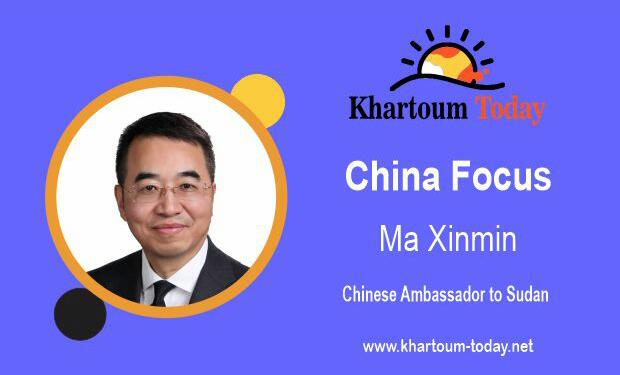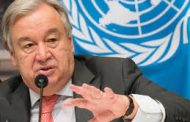On May 28, 2020, the Third Session of the 13th CPPCC National Committee and the Third Session of the 13th National People’s Congress (NPC), together known as the “Two Sessions”, closed successfully in Beijing. At a time when the epidemic of COVID-19 is still raging over the world, China’s significant “Two Sessions” that have attracted worldwide attention send out Chinese voices to the world, bolstering confidence and strength for the global fight against the epidemic, global economic revitalization and international cooperation.
China’s will to promote higher-standard opening up is unswerving. The year 2020 suffers much misfortune, with the pandemic still spreading in the world and the world economy in deep recession. In this context, some countries are pursuing trade protectionism and deliberately weakening the international trade organization. This approach not only lacks a sense of responsibility, but also a short-sighted behavior that ignores the historical trend. While delivering the Report on the Work of the Government, Chinese Premier Li Keqiang pointed out that in the face of changes in the external environment, we must stay committed to opening our door wider to the world, keep our industrial and supply chains stable, and make opening up a catalyst for reform and development. As an important stabilizer and driver of the global economy, China will advance a new round of trials for innovative development of trade in services, work actively to expand imports, and foster a large globally-oriented market of higher standards. China’s clear message on maintaining strength and pursuing opening up and cooperation sent on the Two Sessions demonstrates its responsibility to work corporately and overcome difficulties together.
China’s will to safeguard national security is unswerving. Since the government of Hong Kong Special Administrative Region’s (HKSAR) attempt to amend the Fugitive Offenders Ordinance and the Mutual Legal Assistance in Criminal Matters Ordinance occurred last year, the forces of “Hong Kong independence” and radical separation have become increasingly rampant, engineering escalating violent terrorist activities. At the same time, external interference forces and “Taiwan independence” forces have flagrantly intervened in Hong Kong affairs. The anti-China and external forces collude with each other, grossly endangering Hong Kong’s public safety and social order, severely challenging the principle of “one country, two systems”, and seriously threatening the rights and freedom of Hong Kong residents and prosperity and stability of Hong Kong, thus posing a real threat to China’s national security. Although Article 23 of The Basic Law of the Hong Kong Special Administrative Region authorizes HKSAR to make its own legislation on safeguarding national security, due to the obstruction of the opposition lawmakers, the relevant legislation has not been completed during the 23 years following Hong Kong’s return. At this critical and urgent moment, the NPC, as the highest organ of state power, made a decision to authorize the NPC Standing Committee to formulate national security laws to block legal loopholes. The legislation of the Hong Kong Special Administrative Region to safeguard national security, aimed at four types of actions and activities that seriously undermine national security, specifically as splitting the country, subverting state power, organizing terrorist activities, and activities of foreign forces to interfere in the affairs of the HKSAR, will be conductive to the implementation of the “one country, two systems” principle and will not affect the high degree of autonomy of Hong Kong, the rights and freedoms of Hong Kong residents, or the legitimate rights and interests of foreign investors in Hong Kong.
China’s determination to maintain national unity is unswerving. The current situation of cross-strait relations has become increasingly complicated and severe. The Taiwan authorities, led by the Democratic Progressive Party (DPP), stubbornly stick to the “Taiwan independence”, conniving and supporting various forms of separatist attempts to sever the connection with the mainland and seek “Taiwan independence”. They have wantonly obstructed cross-strait exchanges and cooperation, and created cross-strait confrontation. At the same time, external forces from the United States and other countries attempted to play the “Taiwan card” and “use Taiwan to contain China”. The collusion between “Taiwan independence” separatist forces and external forces seriously jeopardizes national sovereignty and territorial integrity and poses a grave threat to the peaceful development of cross-strait relations. Since the outbreak of the new coronavirus pneumonia, the DPP administration has publicly trumpeting “one China, one Taiwan” and hyped the proposal for Taiwan’s participation in WHO limited to sovereign countries, in an attempt “to seek independence under the cover of the pandemic”. Under these circumstances, the Report on the Work of the Chinese Government clearly states that China will improve institutional arrangements, policies, and measures to encourage exchanges and cooperation between the two sides of the Taiwan Strait, further cross-Strait integrated development, and protect the well-being of our fellow compatriots in Taiwan. We will encourage them to join us in opposing “Taiwan independence” and promoting China’s reunification. Chinese State Councilor and Foreign Minister Wang Yi has reiterated that China firmly opposes official interactions with the Taiwan authorities under the guise of health cooperation, and firmly opposes Taiwan’s pursuit of so-called “international space” in violation of the one-China principle. Reunification of the two sides of the Taiwan Strait is an inevitable trend of history. No individual or force can stop it from happening.
China’s commitment to upholding multilateralism is unswerving. For a period of time, the rising unilateralism and “anti-globalization” has greatly weakened the international law and order. In particular, the Trump administration holding high the banner of “America First” has successively withdrawn from a series of international treaties such as the Paris climate agreement, Iran nuclear deal and the Intermediate-Range Nuclear Forces Treaty, and quit several multilateral international mechanisms such as UNESCO and UNHRC. It also thwarted the appointment of WTO appellate judges, forcing the WTO dispute settlement mechanism to halt. What’s more, the US has been creating turmoil by abusing military force, unilateral sanctions and “long-arm jurisdiction” around the world and instigating regime change and color revolution one after another. Under such circumstances, Chinese President Xi Jinping has repeatedly emphasized the adherence to multilateralism. And Chinese State Councilor and Foreign Minister Wang Yi pointed out that China firmly opposes unilateralism and power politics and remains committed to promoting opening up and keeping the global supply and industrial chains stable and safe. China firmly maintains the UN-centered international system and the international order based on the international law, stands firm by the multilateral trading regime with the WTO as the cornerstone, and resolutely supports WHO’s core role in coordinating global public health governance.
China’s vision to build a community of a shared future for mankind is unswerving. In this increasingly globalized world, non-traditional security threats and global issues become prominent, especially the COVID-19 pandemic that has evolved into the biggest public health challenge faced by all mankind. Chinese President Xi Jinping has repeatedly stressed that humanity is a community with a shared destiny and unity is the most powerful weapon to defeat the virus which concerns the safety of people of all countries. Chinese State Councilor and Foreign Minister Wang Yi noted that the epidemic serves as a stark reminder at the cost of so many precious lives that countries should transcend differences in geography, race, history, culture and even social systems, and must join hands to build a community with a shared future and collectively safeguard the only planet we live on. Globalization represents an inevitable trend in the development of the world and a strong tide driving human progress. “Backlash against globalization” and trade protectionism are doomed to failure. As stated in the Report on the Work of the Chinese Government, in the face of the public health crisis, severe economic recession, and other global challenges, all countries should pull together as one. China stands ready to work with other countries to strengthen international cooperation on COVID-19 control, promote stability of the world economy and advance global governance, in a bid to build a community with a shared future for mankind collectively with the international community.
https://khartoum-today.net/
 Sudan army chief Al Burhan freezes bank accounts of paramilitary RSF
Sudan army chief Al Burhan freezes bank accounts of paramilitary RSF Sudan’s SAF & RSF sign agreement intended to lay groundwork for humanitarian assistance
Sudan’s SAF & RSF sign agreement intended to lay groundwork for humanitarian assistance SAF, RSF agree on extension truce for the sixth time
SAF, RSF agree on extension truce for the sixth time Army, RSF agree to extend truce for 72 hours
Army, RSF agree to extend truce for 72 hours Sudanese people fled to Egypt amid acut humanitarian crisis
Sudanese people fled to Egypt amid acut humanitarian crisis THE ELEPHANT IN THE ROOM
THE ELEPHANT IN THE ROOM Death toll from Sudan fighting tops 180 as clashes in Khartoum enter fourth day
Death toll from Sudan fighting tops 180 as clashes in Khartoum enter fourth day By the UN Secretary-General Op-ed on G20 – 8 billion
By the UN Secretary-General Op-ed on G20 – 8 billion A strong military key to maintaining world peace
A strong military key to maintaining world peace Beautiful China shows new chapter of ecological conservation
Beautiful China shows new chapter of ecological conservation

CHINA’S “TWO SESSIONS” SENT REASURING MESSAGES TO THE WORLD
About the author
Related Articles
2020 All rights reserved khartoum-today.net 0124293222






